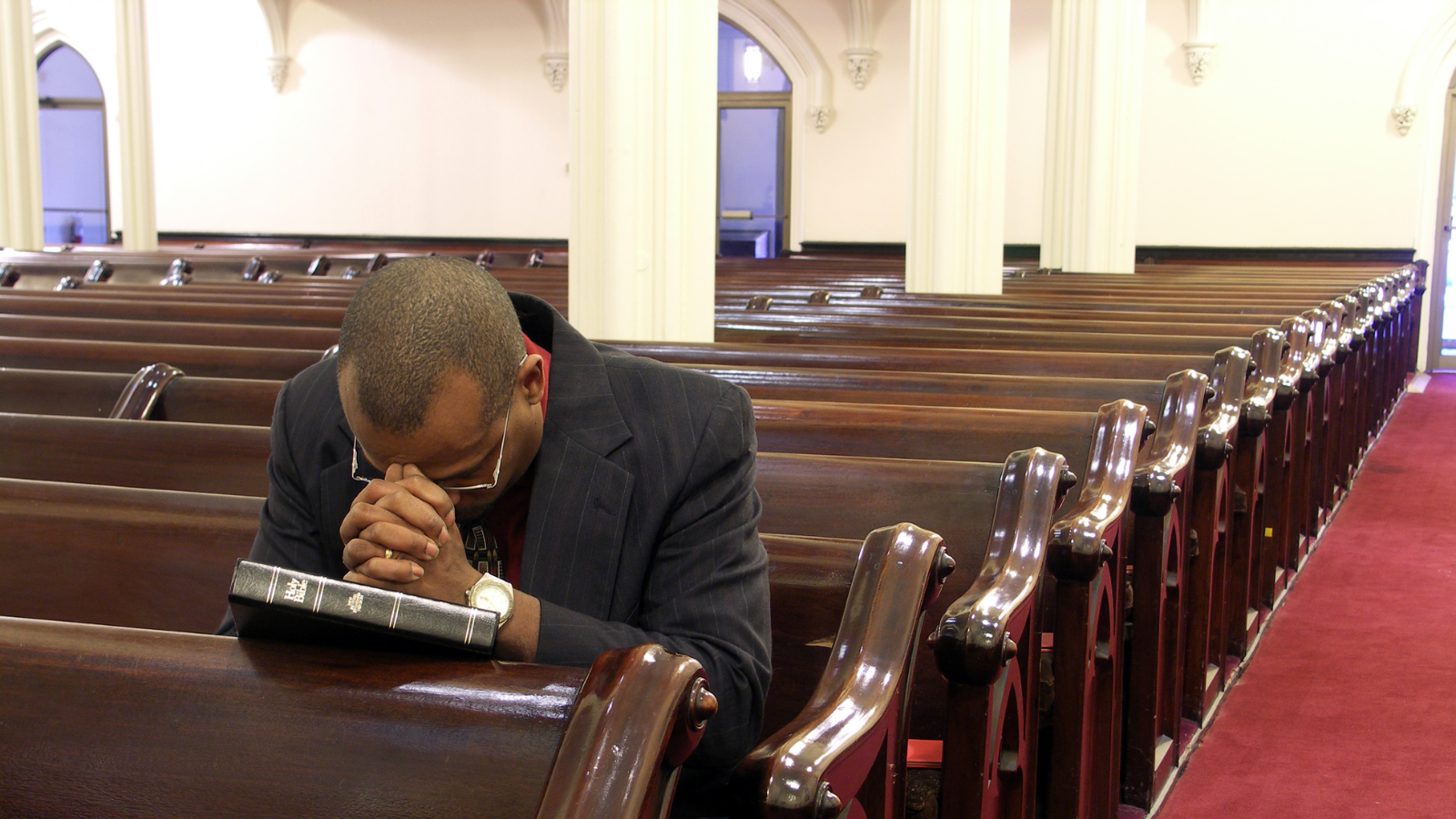Should churches pay taxes? That depends on who you ask.
Recently, one person turned to a popular social media platform to share their opinion and to ask what others thought as well.
This person shared,
“I personally am more ok with smaller churches that are very local and have small buildings and such (nothing extravagant) with being tax exempt. I personally think large churches that are huge and are more extravagant and mega churches should for sure be taxed. That money could help the local community, in my opinion. My various Christian friends and family also do seem to agree with this point as well. What do you think?“
Surprisingly, what followed was a polite conversation full of great insights from both sides.
Some Feel Strongly: Churches Should Be Taxed.

Some commenters expressed strong feelings, sharing that churches (particularly megachurches) should definitely be taxed.
“Absolutely. Its its disgusting these mega church pastors like Kenneth Copeland, Benny Hinn and Joel Osteen making millions of dollars while preaching a false gospel and being materialistic asking for church donations to fund their lavish lifestyle. It’s worse than atheism.”
These people feel it’s morally wrong for churches to take advantage of the government and taxpayers in this way.
Others Had Mixed Feelings, Depending on the Church

Thankfully, most people were able to differentiate between large churches that misuse funds and small, cash-strapped churches truly trying to make a difference in their community. Some of these people suggested different rules could be appropriate, depending on the church.
One person shared,
“I don’t think [a church] should be taxed if it is a genuine religion that actually spends its money on charitable works, churches/monasteries that are actually used, reasonable homes, etc. Most Catholic dioceses are actually comparatively poor or modest because they do spend most of their money on faith activities and the Vatican itself only has one billion dollars in liquid assets generating roughly 30-40 million a year for a faith with 1.3 billion people.”
Another agreed,
“Megachurch pastors living luxurious lifestyles and Mormons having a secret 100 billion dollar investment fund absolutely should be taxed. They are supposed to use that money to actually do charity and expand their faith — not just hoard it. I had Mormon friends in who tithed as best they could their entire lives but then they actually needed from their church only to be told the church could not afford it while it is sitting on 100 billion and growing. If Catholics hoarded that comparable amount of money we would have close to 8 trillion dollars in assets generating 382 billion a year in safe assets.”
Some Shared Logistical Concerns… and Possible Solutions

While the idea of taxing the “greedy” churches and not taxing the churches who are truly trying to make a difference may sound appealing, many people were quick to point out the logistical problems that would cause.
One person shared,
“How would you write the tax code that would define ‘megachurch?’ Technically speaking, all parishes belong to the bishop in my tradition.”
Another shared,
“I suggest a baseline revenue threshold. Also all churches should need to show where the money is going. Transparency is a good thing we should demand.”
Most Want Greater Transparency

Many felt that the tax-exempt status isn’t the problem, but the lack of transparency. If churches can show that they are using the funds for charitable causes, then they should be able to earn and keep their tax-exempt status.
One person shared,
“I don’t mind churches being tax-exempt. But they shouldn’t be exempt from filing a 990 like every other tax-exempt organization, which makes more than 50,000 dollars. Then people could see where the money goes.”
Another agreed,
“I don’t understand why they get to have no taxes, and they get to have the secrecy of a private business. That is absolutely ridiculous. They are accepting funds from people and not being taxed… people should be able to actually record it and see where the money is going, but we can’t. Honestly, it’s unbelievable.”
Some Trust Churches More Than Government

On the other hand, other people felt that the average church is more trustworthy and fiscally responsible than the federal government.
For them, they would rather have churches decide how to use the extra money to help communities, so the funds don’t get stuck in government bureaucracy.
One person shared,
“The money is doing more good in churches than in the government.”
Another agreed,
“Agree. What most fail to realize are all the free services many churches offer: food banks, free meals, counseling, church services, death services, baptism, helping homeless, etc.”
Some Want Less Government Control

Yet, as many pointed out, accepting money from religious institutions can lead to unforeseen problems… not just more money for public services.
One person pointed out:
“Taxing religion is the government meddling in religion. If you start taxing religious institutions, then those same institutions can start meddling in the government.”
Another shared,
“I don’t want the government to have the power to determine which churches should and shouldn’t be tax exempt. Either tax them all or not.”
A third person agreed,
“The simplest thing to do would just be to tax them all to get rid of the problem of deciding what is a ‘true’ religion and what is just a charlatan with a mansion and private jet. Otherwise, it is the government more or less establishing certain religions as legit and others not.”
You Can’t Tax With No Profits

Others pointed out how difficult it can be to tax (and collect any money from) a true non-profit.
If a church doesn’t have any profits, there’s no money to tax. If a church does have profits, the threat of taxes can lead to hiding or misusing funds to avoid paying these taxes.
One person shared,
“But they’re still nonprofits. Even if we tried to tax them, we couldn’t, because we tax profits. Every year they would report that they don’t make any profit and they would be telling the truth.
For-profit corporations do this exact same thing to avoid paying taxes every year. Only they’re just hiding their profits. Whereas churches actually have to spend all the money they make in a year and not have any profit.”
Another shared,
“Nonprofits simply have to spend all of their money… so typically what they’ll do is they’ll give the executives a large fat bonuses. They’ll send the employees on nice trips. They’ll buy up stuff. They’ll just do anything to make sure they don’t have the money left over… I do definitely think there should be a hard cap on how much the board members or CEO of a non-profit are allowed to make per year. It’s ridiculous, and I don’t really think nonprofits should even really be able to invest in stuff that’s kind of sketchy in the first place.”
Some Shared Concerns Around Lobbying

The more money an organization has, the more power they have to lobby for change. While this is a good thing for great organizations trying to bring about positive change, it often simply means that whoever has the money has the power.
One person shared,
“If Churches get taxed, then they are paying for governmental services, and therefore the government could be financially pressured by different faith groups to enact policies favorable to these faiths.”
Another shared,
“The bigger and more wealthy the church, the more voters who attend it, and the more lobbyists it can afford to employ. The U.S. government is a pay-to-play system, and that much money and influence with voters can’t just be disregarded. Plus, you still have the Government favoring one faith over another.”
A Few Shared Concerns About Using Public Resources

A few people pointed out that if churches aren’t paying for public services, they shouldn’t be allowed to use them for free.
One person shared,
“If your megachurch pays zero taxes yet requires 4 officers in uniform 3 times a week to clear parking lots, that’s a lot of public resources to consume. It should be on the church to provide and safe and reasonable parking situation for their churchgoers.”
This doesn’t have to apply to all public services, however. One person shared,
“It’s fine that churches are tax-free, but they shouldn’t also get the benefit of public services (except fire/ems).”
Not All Churches are Exempt

It’s important to note: Not all religious organizations have a tax-free status. One person shared,
“Some Churches, Mosques, Synagogues have given up 501(c)(3) status in order to do and say whatever they choose without regards to limits otherwise placed on charities. However, this comes at the cost of tax exemption and privileges, as well as the ability to have donors give tax-deductible gifts.”
Churches Aren’t the Only Problem

Yet, while some churches are foregoing these benefits, other organizations have no problem taking advantage of them. Quite a few people mentioned that churches aren’t the only problem — many non-religious organizations take advantage of the system as well.
One person shared,
“The USA could use some better rules (and better enforcement) around nonprofits in general. A few (large, notable) churches abuse that status, as do many political nonprofits.”
Another agreed,
“It isn’t as if our for-profit tax system is any better. Larger corporations pay little to sometimes no taxes. The same would be true for megachurches. If a megachurch can afford to give their senior leadership a private plane, then they would most likely have the accounting prowess to pay little to no taxes.
Meanwhile, the rest of the churches with little to no accountants would pay the brunt of taxes, or worse, face legal repercussions for not filing out their ledger forms correctly.”
There’s No Easy Solution

Despite the great discussion, the conclusion was pretty clear: There isn’t one great solution that would work well for everyone. There are always going to be loopholes, and people are always going to find ways to get around them.
One person shared,
“In the US, we literally worship money. While few will admit it, most automatically look up to wealthy people and feel that they must be better then they are to have gotten so rich. We even have the ‘Gospel of Prosperity’ to help those who got rich, regardless of the methods used, believe that God approves of them and their ways.”
Another agreed,
“Money is more or less a form of power. Humans compete for power within society as a greater means of assuring they will survive and thrive. Just like any social animal fights for their rank in the herd, pack, or pride. Of course power is measured in relation to the power of others, it is one’s net power that determines their pecking order, so for many, they never have enough.”
From Pulpit to Platform: Meet 10 Massive Megachurches that Inspire Millions

Have you ever wondered what it would be like to worship inside one of the country’s largest megachurches?
Whether you’re looking for sermons to convict and inspire, worship music to usher you into God’s presence, opportunities to make a difference in your local community or programs for the whole family to get connected in the community, these churches have it all.
With charismatic preachers, talented worship teams, and friendly staff, it’s not difficult to see how these churches grew to the impressive size they are today.
From Pulpit to Platform: Meet 10 Massive Megachurches that Inspire Millions
Bible and Money: 12 Reasons Why Some Christians Find Dave Ramsey Problematic

Dave Ramsey is a well-known figure in the world of personal finance and has gained a significant following for his advice on budgeting, getting out of debt, and building wealth. He’s perhaps best known for his “Financial Peace University,” a personal finance class frequently held by churches around the nation. But why do some Christians find him problematic?
Bible and Money: 12 Reasons Why Some Christians Find Dave Ramsey Problematic
Brittany Ann is an ECPA bestselling author and founder of Equipping Godly Women and Monetize My Ministry. She’s also a Christian speaker, podcaster, and conference host. Her work has been featured on numerous TV, radio, and online ministries, including CBN, MSN, Christianity Today, Evangelical Alliance, Patheos, Crosswalk, and more.

